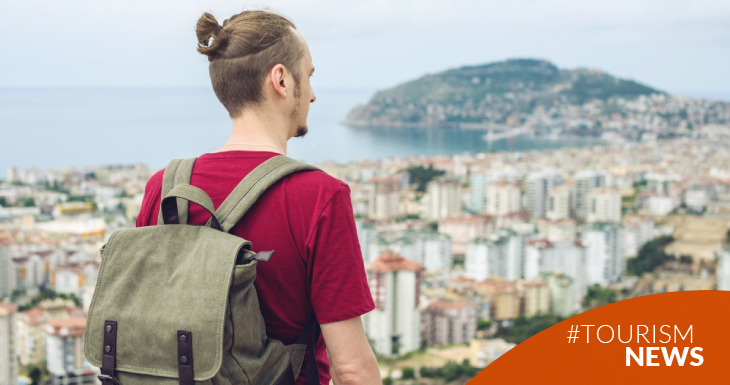Have you ever wondered what kind of tourist you are? Do you seek tranquility in nature, enjoy learning about the history and culture of each place, or do you prefer adrenaline and adventure?
This World Tourism Day is the perfect opportunity to discover the different ways to travel. From rural tourism, volunteering, to wine tourism or health tourism, there are as many options as there are tastes, since over the years, tourism has evolved and diversified, adapting to the new demands and travelers´ desires. Do you dare to try something different on your next adventure?
Tourism in all its forms offers travelers unique and personalized experiences:
1. Health Tourism
It focuses on trips that seek to improve physical and mental well-being. This includes everything from specialized medical and aesthetic treatments, dental procedures, fertility treatments, to wellness experiences in spas and meditation centers. This type of tourism has grown considerably in Turkey and has become a leading destination for health tourism, especially known for its hair implants. Recently, it has also gained popularity in cosmetic surgeries such as rhinoplasty, liposuction and breast augmentation. The combination of competitive prices, highly qualified doctors, and the possibility of visiting an exciting city like Istanbul, attracts thousands of international patients every year.
2. Religious Tourism
This type of tourism attracts people who seek to strengthen their faith or explore their spirituality. It includes pilgrimages to holy places such as Mecca in Saudi Arabia, the Vatican in Italy, or the Camino de Santiago in Spain. Religious tourism is not only a form of devotion, but also an opportunity for cultural exchange.
3. Volunteer Tourism
Also known as voluntourism, it combines the desire to travel with the intention of contributing positively to local communities. Volunteers participate in projects ranging from building schools to wildlife conservation. Although its popularity has grown, it has also been criticized for its potential negative impacts when not managed properly.
4. Rural Tourism
It allows travelers to escape the hustle and bustle of cities and immerse themselves in country life. It is ideal for those seeking an authentic, close-to-nature experience, with activities ranging from farming to hiking in natural settings. Countries such as Spain, France, and Argentina have seen a boom in this type of tourism.
5. Ecotourism
This type of tourism invites travelers to explore natural areas with a low environmental impact, such as national parks and nature reserves. It is an excellent option for those committed to protecting the planet.
6. Business Tourism
Congresses, conferences, and business meetings are part of this segment, which has a significant economic impact in cities such as New York, Tokyo, and London.
7. Adventure Tourism
It is aimed at those seeking thrills and physical challenges. It includes activities such as trekking, rafting, climbing, and diving. This type of tourism is popular in destinations such as Nepal, Costa Rica, and New Zealand.
8. Wine and Gastronomic Tourism
They combine a passion for food and wine with the pleasure of traveling. Travelers can explore wineries, participate in wine tastings, and sample local cuisine. Regions such as La Rioja in Spain, Tuscany in Italy, Napa Valley in the United States, and Patagonia in Argentina are top destinations for this type of tourism.
9. Space Tourism
Although still in its early stages, space tourism is one of the most futuristic types. With companies such as SpaceX and Blue Origin leading the race, this type of tourism promises to offer travelers the chance to see the Earth from space.
10. Sex Tourism
This type of tourism is one of the most controversial and is associated with ethical and legal issues. It is often linked to exploitation and abuse, which has led many governments to take measures to combat this form of tourism.
QTAssist accompanies travelers with comprehensive travel assistance, personalized and differentiated according to the planned trip, with high quality standards so that each experience is lived to the fullest and without worries.
Let us remember that tourism has the power to transform lives, both of those who travel and those who receive travelers.


